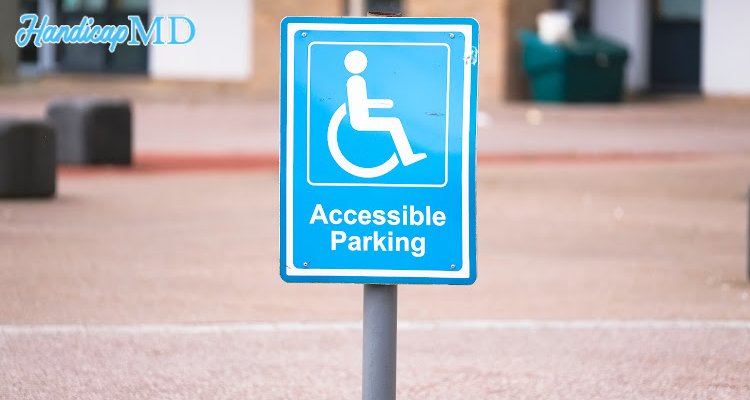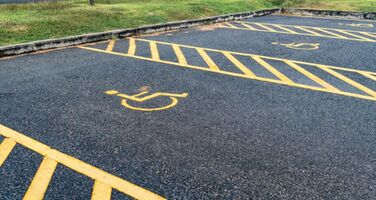
Handicap Placard vs. Handicap License Plates: Which is Right for You in Maine?
Introduction
Navigating the world with mobility challenges necessitates thoughtful choices, especially when it comes to obtaining the right accommodations. Individuals with disabilities often face the decision between Handicap Placards and Handicap License Plates in Maine. This guide will walk you through the nuances, helping you make the choice that best aligns with your unique requirements.
Placard vs. License Plates: Exploring the Options
Understanding Handicap Placards
Handicap placards, recognizable by their distinct blue and white design, serve as a temporary solution for individuals with disabilities. These permits are typically hung from the rearview mirror when the designated parking space is in use. It offers a convenient temporary solution for those with short-term mobility challenges. Issued by the Maine Bureau of Motor Vehicles, these are ideal for individuals recovering from surgery or injuries. They provide close parking access, easing the strain of daily activities.
Eligibility Criteria
To obtain a Maine Handicap Placard, individuals must fulfill specific eligibility criteria. This includes proof of disability, a doctor's certification, and completion of the requisite application.
Application Process
Securing a handicap permit involves a straightforward application process through the BMV website or in-person at a local office. The temporary nature of these permits makes them a practical choice for those expecting a return to regular mobility.
Benefits of Placards
- Convenient temporary solution
- Close parking access
- Easy application process
Decoding Handicap License Plates
On the other hand, handicap license plates offer a more permanent solution. These plates are affixed to the vehicle and grant disabled parking privileges even when the person with the disability is not the driver. The process of acquiring handicap license plates involves similar eligibility criteria but with additional considerations, making it a viable option for those seeking a long-term solution. They offer a more personalized and enduring way to signify disability, providing ongoing accessibility benefits.
Qualification Criteria
Eligibility for License Plates involves a more stringent evaluation, ensuring these plates are reserved for those with lasting mobility impairments.
Application Process
Securing Disability License Plates involves a comprehensive application, including medical documentation and BMV approval. The process reflects the commitment to providing accessible resources for those with enduring mobility challenges.
Benefits of License Plates
- Permanent solution
- Personalized and enduring
- Ongoing accessibility benefits
Making the Decision: Placard vs. License Plates in Maine?
Navigating the decision-making process requires a thoughtful consideration of personal circumstances. Here are factors to ponder:
Duration of Disability
Consider the duration of your mobility challenge. For temporary situations, a disability permit might suffice, while long-term or permanent conditions warrant the permanence of Disability License Plates.
Personal Preferences
Evaluate your comfort level and personal preferences. Some individuals prefer the ease of temporary ones, while others appreciate the enduring nature of license plates.
Cost Comparison
In Maine, the cost difference between disability permits and license plates is nominal. While placards are often free, license plates may involve a small fee. However, the long-term benefits of license plates may outweigh the initial cost, making it a worthy investment.
Lifestyle Considerations
Your lifestyle plays a crucial role. For those constantly on the move, a Placard might be more practical. However, if your routine is more settled, the permanent nature of license plates might be a better fit.
FAQs
How long does it take to receive a Disability Permit in Maine?
The processing time for Handicap Placards in Maine typically ranges from two to four weeks.
Can I use my License Plates in other states?
Yes, Disability License Plates are recognized across all states, providing consistent accessibility benefits during travel.
What if my temporary condition becomes permanent?
If your temporary condition becomes permanent, it's advisable to transition to License Plates for ongoing accessibility.
Are there renewal requirements for Disability License Plates?
Yes, License Plates require periodic renewal. The renewal process involves updated medical documentation.
Can I lend my Permit to someone else?
No, these are non-transferable and should only be used by the individual to whom they are issued.
How do I appeal if my application is denied?
If your application for either Disability Placard or License Plates is denied, the BMV provides an appeals process. Gather additional supporting documentation and reapply.
Conclusion
Choosing between a Handicap Placard and Handicap License Plates in Maine is a decision that requires careful consideration of personal circumstances. By understanding the nuances of each option, you can confidently select the one that aligns with your unique needs. Remember, accessibility is about empowering individuals to navigate the world with ease, and Maine offers robust options to support this endeavor.
.png)






